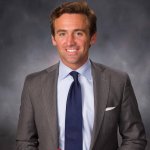Once, lost on the way back from Philadelphia Airport because I got off the highway to buy gas, I found myself meandering on some backcountry roads. It was early morning and I was driving slowly on a two-lane road when four pheasants suddenly rose into the air from the side of the roadway and gave me a show of colored feathers, as they flew away.
I had never seen a pheasant fly before and was awed by the sight for the rest of the day and even now as I recall it. It was a gift.
On New Year’s Day I was feeling ill and couldn’t attend to a few obligations away from home. Not one to sit idle I decided to fold some laundry and watch a little TV.
To my surprise, I managed to tune into a program on Tenzin Gyatso, the Dalai Lama, filmed during his visit here last year. It was the talk he delivered at Rutgers University in New Bruns-wick.
When I heard he was going to be in the state last September, I hoped that I would be able to attend the public appearance at Rutgers, but it didn’t work out that way.
But now on a day when I was feeling a bit sorry for myself being housebound, I was treated to this experience I had missed.
His words, simple and true, bring a message of reason and sense in a time that is fraught with killing in the name of religion or because of religion that history has not taught us to avoid.
The concept of war is out of date, were his words, “because of the global nature” of the world today. Fixed boundaries are no longer valid.
War means victory for one side and defeat for the other and with the availability of nuclear weapons, “The concept of war is very dangerous,” he said. The capability of destructions is ex-pensive.
How to get “peace in the world, peace in myself, peace in family and peace in community,” should be everyone’s goal, he said. Through a “spirit of dialogue and with reconciliation” we can reach “a genuine way to build a better world.”
“Peace does not mean no more problems,” he said, “but problems will always be there.”
Our goal, he said should be a weapons-free world by the end of the century. How to accom-plish this?
He suggests “external disarmament,” simply reduce weapons until “eventually the whole world should be free of nuclear weapons, gradually free of biological and other offensive weap-ons.”
“Stop conflict” is his other suggestion.
At the same time, each of us has to have an internal discussion, he explained. “Look to emo-tions which are destructive.” He doesn’t see this as a religious exercise; rather it is achieved “through schooling of the mind.”
He said he thinks there are “too many self-centered, motivated persons.” We should use our intelligence to the maximum to study the realm of emotions.
Negative emotions like hatred and anger can add to a person’s view of reality, which then may not be realistic, he said. The medical world also recognizes how these feelings can affect health, he added.
We should strive toward “compassion, which is based on sound reasoning, and attachment, which is instinctual,” he said.
“I walk through streets and smile at everyone,” he said. “Everyone smiles (back), except some who get more serious.” They must have some suspicion, he added, smiling broadly.
“Compassion is not a mere feeling of pity; equalness, respect and sameness are there,” he said. With it there is “less fear, less stress, less loneliness.”
In his view, “the death penalty is bullying, you already have the person incarcerated.”
For others, and ourselves we need “mutual respect, mutual trust,” he said. , “A feeling of closeness opens our inner door.”
The way to look at it, he suggested, is “We are a social animal, in order to get the maximum benefit for myself, I have to think of others. My future depends on the welfare of all.”
He is not suggesting the world can change in one day or even a few years, but his message is not foreign to the fundamental messages of other religions and he is not about converting eve-ryone to Buddhism.
You can find meaning in his words without accepting that he is the 14th Dalai Lama. The 13th reincarnation of Gedun Drupa, who was born in 1391 and the first Dali Lama, which literally means “ocean of wisdom.”
Tenzin Gyatso lives in exile in India since the Chinese have occupied Tibet since 1959. He won the Noble Peace Prize in 1989 for his non-violent struggle for the liberation of Tibet.
He has traveled to more than 62 countries across six continents, and has met with world gov-ernment and religious leaders and scientists. He has authored 72 books.
He describes himself as “a simple Buddhist monk.” He gave his entire talk seated, taking tea, while he slowly explained his view of the world to the crowd around him.
Stone Harbor – Bob Ross thank you for all your years of volunteer service to the community of Stone Harbor. A Lifelong resident And property owner. 10 years on school board, 6 years on zoning board they can't…







